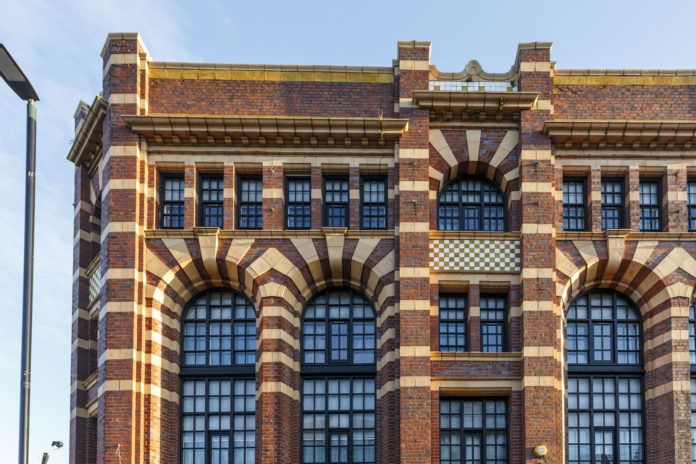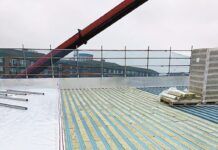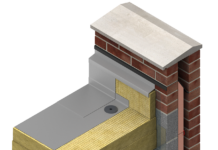Market-leading guarantees and technical support, in addition to pitched and flat roofing requirements made BMI the top choice when it came to refurbishing Crowngate Apartments in Birmingham.
Built in 1912, the Crowngate building has a Grade II listed façade, and was originally a clothing factory before Midland Heart, one of the region’s leading housing associations, converted it into 120 residential flats in the 1980s.
Midland Heart asked roofing contractor Hodgson Sayers to survey both flat and pitched roofs on the multi-storey building and advise whether repair or replacement was needed to meet current building regulations. In turn, Hodgson Sayers invited BMI to survey and provide specifications for renewing the flat and pitched roofs because the poor condition of the existing roofs ruled out repair as an option.
A BMI flat roofing system comprising areas of BMI Sealoflex liquid waterproofing and BMI Icopal bituminous waterproofing, and insulation was specified for the flat roofs, with BMI Redland Cambrian tile on the pitched roofs. The Welsh-made Cambrian tile slate replicates the original slate roofing, and so meets Birmingham City Council’s conservation policy whilst offering a robust modern material that withstands severe weather conditions.
“Midland Heart chose BMI because it not only met the design brief, but it provided support and on-site supervision throughout the project,” said Rob Kraska, senior contracts manager (planned), Midland Heart.
“The BMI SpecMaster service also provides a 15-year guarantee for further reassurance, and the use of Redland’s Cambrian tile slate enabled us to meet conservation guidelines and, because it is made from recycled Welsh slate, our own environmental criteria.”
The £1.2 million project, which took over a year to complete, involved stripping the existing waterproofing back to the deck, repairing damaged areas and installing an insulated three-layer bituminous system. The work included dealing with the common issues of raising upstands, water checks and altering outlets and other penetrations.
There were more unusual challenges too as some of the confined areas meant alternative build-ups and products had to be found. For instance, a new gutter layout had to be designed for the inner court yards to remove standing water, and the complexity of the top gutters meant Sealoflex liquid waterproofing was deployed to ensure the installation was waterproof. Sealoflex was also used in conjunction with bitumen to seal the window cleaning rig support structure.
“One of the greatest challenges was carrying out this lengthy project with the least disruption possible to the 180 Midland Heart tenants living in the flats,” added Rob.
“The contractors had to maintain safe access for residents at all times and strictly adhere to their own working areas. Scaffolding had to be constructed around the exterior of the apartments so that the construction team could access the different roofs, and also provide an edge protection to the entire building.
“It was also essential that large quantities of roofing material were removed safely and transported quickly from the site, as there is very little on-site storage and the building lies between two busy roads on the edge of Birmingham’s bustling Jewellery Quarter.”




